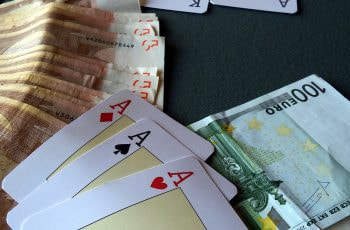Poker Legend Phil Ivey Loses £7.7m Court Battle with Mayfair Casino
Professional poker star, Phil Ivey, has lost a Supreme Court challenge dubbed “the biggest legal battle in casino history”, over £7.7 million he was accused of cheating to win.

Phil Ivey in a more familiar setting at a poker table. ©World Poker Tour
The ten-time World Series of Poker champion was playing punto blanco at Crockford’s Club in London’s Mayfair region, and admits to using a known strategy to identify irregularities on the backs of cards. Ivey maintains that the technique, known as ‘edge sorting’, is a legitimate way of playing the game.
Five Supreme Court justices disagreed with the 40-year-old American, voting unanimously to uphold the Court of Appeal’s original verdict, which claimed that Ivey was “cheating under civil law”. The court added that dishonesty wasn’t necessarily a part of “cheating”.
The justices’ statement claimed Ivey had “staged a carefully planned and executed sting” on the exclusive casino, continuing, “Mr Ivey’s conduct was, contrary to his own opinion, cheating, the better view would be, if the question arose, that his conduct was, contrary to his own opinion, also dishonest.”
The statement continued, “That it was clever and skilful, and must have involved remarkably sharp eyes, cannot alter that truth.”
Ivey said the casino told him his winnings would be wired to him, but he only received his £1 million stake. This prompted the poker superstar to launch a legal bid in 2014 to reclaim the remaining £6.7 million. However, the Court of Appeal rejected his claims that he was an “advantage player”.
Over a two-day spell in Crockford’s in August 2012, Ivey, along with fellow gambler Cheung Yin Sun, managed to convince the dealer to rotate the most valuable cards by feigning superstition. The Supreme Court said the dealer was oblivious as to the real motives behind the requests.
The court claimed, “Mr Ivey’s actions were positive steps to fix the deck and therefore constituted cheating.” However, judges considered Ivey to be an honest witness who genuinely believed what he was doing was not cheating.
Ivey, who has been dubbed the “Tiger Woods of Poker”, had previously incorporated the ploy in casinos in Australia and Canada.
In a statement released after the verdict, he claimed it was “contrary to the facts and any possible logic involved in our industry.”
It is very frustrating that the UK judges have no experience or understanding of casinos and Advantage Play, or the ongoing battle between casinos and professional gamblers attempting to level the playing field. – Phil Ivey, professional gambler
Commenting on the verdict, Stephen Parkinson, Head of Criminal Litigation at Kingsley Napley LLP, remarked, “This is one of the most significant decisions in criminal law in a generation”. He added, “For 35 years juries have been told that defendants will only be guilty if the conduct complained of was dishonest by the standards of ordinary reasonable and honest people and also that they must have realised that ordinary honest people would regard their behaviour as dishonest.
“The Supreme Court has now said that this second limb of the test does not represent the law and that directions based upon it ought no longer to be given by the courts.”



